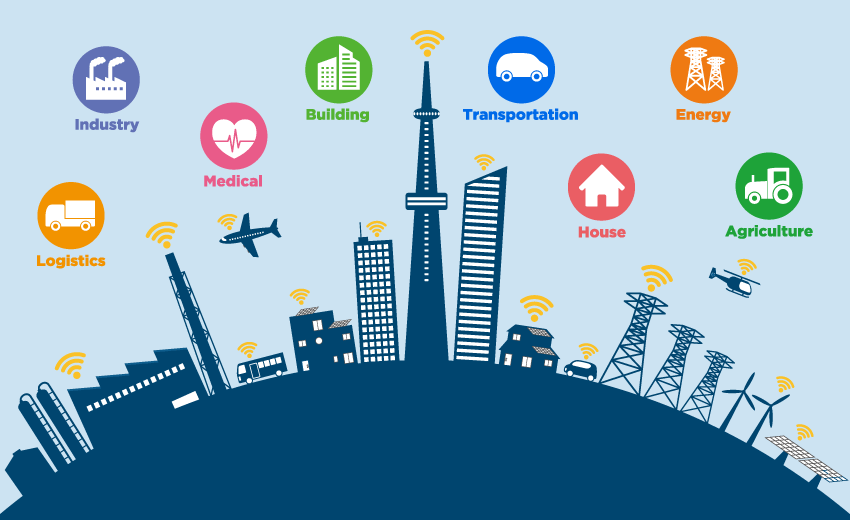As Saudi Arabia advances toward its Vision 2030 objectives, smart technologies are reshaping various aspects of urban life, including healthcare. Smart City Health solutions integrate cutting-edge technology, interconnected systems, and data-driven approaches to enhance healthcare delivery in rapidly growing cities. These solutions are vital for ensuring accessible, efficient, and high-quality healthcare services that can accommodate urban populations’ evolving needs.
By adopting these transformative technologies, Saudi Arabia is setting a global benchmark for innovative urban healthcare systems that prioritize prevention, efficiency, and inclusivity.
The Role of Smart City Health in Modern Urban Development
In the context of urban development, Smart City Health goes far beyond digitizing healthcare services. It establishes an ecosystem where healthcare providers, urban infrastructure, and citizens are seamlessly connected. This ecosystem is designed to enhance health outcomes through real-time data exchange, predictive analytics, and smart devices that streamline diagnosis, treatment, and emergency response processes.
Bridging Gaps in Urban Healthcare
Urban areas often face challenges such as overcrowded healthcare facilities, limited accessibility in underserved regions, and inefficiencies in resource management. Smart City Health solutions aim to address these issues by utilizing data to predict healthcare demands, allocate resources effectively, and ensure that services are accessible to all.
In Saudi Arabia, where urbanization is growing at an unprecedented rate, these solutions offer a sustainable way to manage public health while improving the quality of life for citizens.
Redefining Healthcare Accessibility
One of the defining aspects of Smart City Health is its ability to extend the reach of healthcare services. Whether through telemedicine for remote consultations or IoT-enabled health kiosks in urban neighborhoods, these innovations eliminate traditional barriers such as distance and availability of specialists, creating a more inclusive healthcare system.
Key Components of Smart City Health Solutions
IoT-Connected Medical Devices
The Internet of Things (IoT) revolutionizes urban healthcare by providing real-time data through connected devices. For example, wearable health monitors track patients’ vitals and transmit the information to healthcare providers, enabling early detection of potential issues and timely interventions. Similarly, citywide networks of IoT-enabled sensors monitor public health data, such as air quality and infectious disease outbreaks, offering actionable insights to authorities.
Advanced Data Analytics for Public Health
Data analytics lies at the core of Smart City Health. Cities can collect and analyze vast amounts of data to identify trends, predict outbreaks, and optimize resource allocation. For example, during the COVID-19 pandemic, data analytics played a pivotal role in tracking infection rates, predicting resource shortages, and guiding public health policies.
In Saudi Arabia, leveraging data analytics can help cities implement more effective vaccination campaigns, improve chronic disease management, and reduce emergency response times.
Telemedicine Services for Urban and Rural Populations
Telemedicine has emerged as a game-changer in healthcare accessibility. By allowing patients to consult doctors remotely, telemedicine reduces the burden on physical facilities and makes healthcare more convenient. This is especially significant in Saudi Arabia, where rural areas often face challenges in accessing specialist care. With telemedicine, these gaps can be bridged, ensuring that high-quality healthcare is available to everyone.
Predictive Maintenance for Healthcare Infrastructure
Smart City Health also includes innovative solutions for maintaining healthcare facilities. Predictive maintenance uses sensors and AI to monitor equipment and infrastructure in real-time. By identifying potential issues before they escalate, hospitals and clinics can prevent costly downtime and ensure uninterrupted patient care. This approach not only improves efficiency but also enhances the reliability of urban healthcare systems.
Security and Privacy in Smart Cities
Incorporating technology into healthcare comes with challenges, particularly in terms of data security and privacy. As health data becomes increasingly digitized, ensuring its protection is critical to maintaining public trust and complying with legal frameworks.
Robust Encryption and Access Control
Smart City Health solutions employ robust encryption techniques to secure data transmissions and storage. Access control mechanisms, such as multi-factor authentication and role-based permissions, further ensure that sensitive health information is only accessible to authorized personnel.
Compliance with Saudi Arabia’s Regulations
Saudi Arabia has stringent regulations to protect health data, aligned with global standards like the GDPR. Any Smart City Health initiative must comply with these frameworks to ensure legal and ethical management of patient information. By adhering to these standards, cities can promote a culture of data responsibility while safeguarding citizen privacy.
The Multifaceted Benefits of Smart City Health
Smart City Health is more than a technological upgrade; it is a paradigm shift in how healthcare systems operate, offering several transformative benefits.
Faster Emergency Response Times
By integrating real-time data sharing and centralized systems, emergency services can rapidly locate patients, access their medical history, and provide timely care. For instance, IoT-enabled ambulances can communicate directly with hospitals, preparing staff for incoming emergencies.
Proactive Disease Prevention
Smart systems equipped with predictive analytics help cities identify health risks before they become widespread issues. For example, by monitoring environmental conditions, such as air and water quality, cities can implement preventive measures to reduce the incidence of respiratory or waterborne diseases.
Cost Savings and Efficiency
Smart City Health optimizes resource allocation, reducing waste and inefficiencies. Automated systems and predictive maintenance lower operational costs, while telemedicine reduces the strain on physical healthcare facilities, allowing resources to be focused where they are needed most.
The Future of Smart City Health in Saudi Arabia
Scaling Solutions for Growing Urban Populations
As Saudi cities continue to expand, scalability will be a key focus. Smart City Health solutions must evolve to accommodate larger populations, more complex data networks, and increasing healthcare demands.
Building Collaborative Ecosystems
The future of Smart City Health lies in collaboration. Partnerships between governments, technology providers, healthcare institutions, and community stakeholders will drive innovation and maximize the impact of smart health initiatives. These partnerships can help cities implement more holistic and inclusive healthcare systems.
Enhancing Citizen Engagement
Empowering citizens to actively participate in their healthcare journey is another critical aspect of Smart City Health. Tools such as health apps, wearable devices, and online platforms allow individuals to monitor their health, schedule appointments, and access personalized medical advice.
Conclusion
Smart City Health solutions are at the forefront of transforming urban healthcare in Saudi Arabia. By leveraging IoT, data analytics, and telemedicine, these systems ensure efficient, accessible, and secure healthcare services for all. As cities grow and technology evolves, the integration of smart health initiatives will play a pivotal role in building healthier, more resilient urban communities. Saudi Arabia’s commitment to embracing these innovations positions it as a global leader in the smart healthcare revolution.



